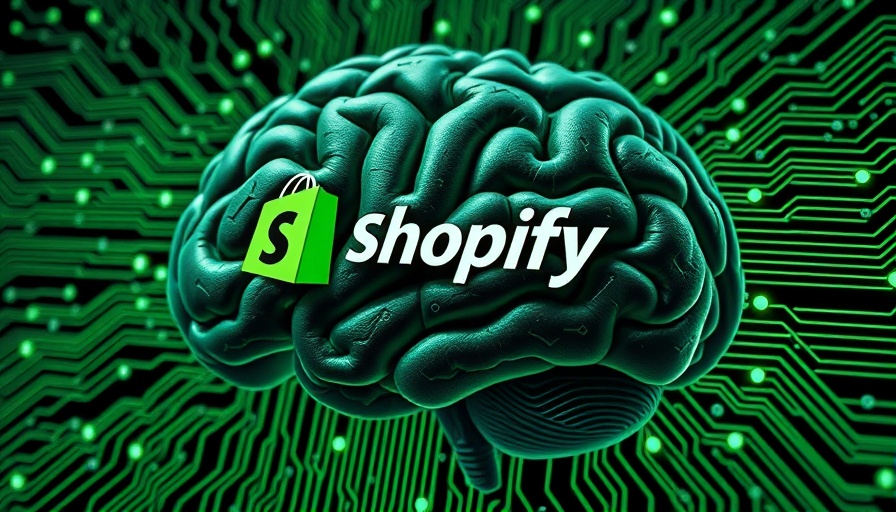
Harnessing AI for E-Commerce Growth
As the digital landscape evolves, AI-driven solutions have emerged as crucial tools for e-commerce brands, especially those operating on platforms like Shopify. In a recent analysis, experts note that AI is not only reshaping customer interactions but is also enhancing operational efficiency.
Understanding the Current E-Commerce Climate
Shopify brands must grasp the current e-commerce environment defined by rapid technological advancements. According to recent data, AI tools are increasingly being integrated into various business processes, enabling brands to personalize the customer experience more effectively, optimize inventory management, and streamline sales processes.
The Value of Customer Personalization
One of the standout benefits of AI in e-commerce is its capacity for hyper-personalization. By leveraging customer data, AI systems can analyze purchasing behaviors and preferences, thus allowing brands to tailor their offerings. For instance, a Shopify store can utilize AI-generated recommendations, significantly improving conversion rates and keeping customers engaged longer. Marketers should focus on building authentic relationships by employing customer engagement strategies that resonate personally with their audience.
SEO Strategies in the Age of AI
To thrive in this AI-driven world, mastering effective e-commerce SEO techniques is vital. Brands need to adopt adaptive content marketing strategies that not only cater to search engine algorithms but also respond to shifting consumer behavior. Incorporating tools that enhance local SEO will further improve visibility in an increasingly competitive digital marketplace.
Embracing Marketing Automation Tools
As e-commerce brands look to simplify their marketing efforts, integrating marketing automation tools is indispensable. These tools can help in analyzing data to tailor campaigns, plan PPC advertising, and track the effectiveness of marketing strategies. Importantly, chatbots are becoming integral in providing real-time support, thus enhancing customer satisfaction while decreasing operational costs.
Analytics: The Backbone of AI-Driven Choices
Data analytics serves as the backbone of any e-commerce business operating in the AI space. Employing advanced analytics tools enables brands to make informed decisions regarding stock levels, consumer behavior predictions, and strategic marketing initiatives. Brands utilizing Google Analytics updates should focus on measuring marketing ROI to ensure their strategies yield profitable results.
Social Media Marketing Trends for E-Commerce
To amplify brand awareness, leveraging social media marketing trends is critical. Engaging with users on platforms like Instagram and TikTok allows brands to create authentic connections and harness the power of influencer marketing to reach wider audiences. This trend is particularly valuable for e-commerce brands to not only drive traffic but to cultivate community loyalty.
The Future of AI in E-Commerce
Looking ahead, the convergence of AI and e-commerce promises groundbreaking innovations. With the rise of voice commerce and visual search optimization, brands must stay ahead by adopting these emerging technologies. E-commerce platforms are also expected to further integrate AI in ways that enhance customer experiences, such as augmented reality fitting rooms or AI-driven visual searches, making shopping more intuitive and engaging.
Conclusion: Prepare and Adapt
For Shopify brands looking to harness the power of AI, preparing and adapting to these changes is essential. Not only will this help streamline processes, but it also opens opportunities for new customer engagement tactics and pathways to increased conversion rates. As digital marketing continues to evolve, keeping an eye on AI trends will be crucial for lasting success.
 Add Row
Add Row  Add
Add 




Write A Comment